Germany Travel Guide - Culture, History, Hotels, Holidays, Tours, Hotel Bookings, Food, Beer, Music Festivals & more
From the high Alps in the South, the Bavarian plain, and the flowing hills of central Germany to the coast of the North and Baltic Sea: it all looks like a miniature train landscape packed with the nicest of old towns, medieval houses, gothic churches.
Thanks to the different regional princedoms, earldoms, monarchies and states Germany did not unite until the last centuries. Thus Germany has not one but many major cities. And each city has its own unique character, formed by its history and the surrounding region. Each is a whole new world unto itself in which you will experience not only different architectural styles and art treasures but also a very distinctive lifestyle. Local traditions and mentalities are clearly reflected everywhere - in the arts, the nightlife, the shops, the pubs and restaurants and the way people work and live.
To start in the north, spend some days in Hamburg, Bremen or Lübeck, those old "Hanse" cities, whose prosperity arose from the independent shipping trade. Berlin, the capital, is of course one of the top travel destinations in Germany - no matter if you are going there for business, cultural or political reasons, or just to enjoy yourself: Berlin has everything!
Right in the centre Hannover is worth a visit. In the eastern part of Germany, you can find real jewels: Leipzig, Weimar, Schwerin and even Dresden, although it was bombed horribly, saved lots of their prewar architectural heritage, and the latter has just restored the famous Frauenkirche. Continue going southwards, maybe with passing Nuremberg, you will sooner or later arrive in Munich, the capital city of beer, but also of art, with the famous Pinakothek. It is a good starting point to find the treasures of Bavaria.
Germany's cities have endless pleasant surprises in store for those who enjoy good food and drink. In addition to top-quality international cooking each region has its own local specialities, ranging from hearty country fare at simple inns to modern light cuisine at star-rated restaurants. Accompanied by our world-famous beers and wines, all this plenty is guaranteed to make your tour of Germany's cities an unforgettable culinary experience.
Discover the beautiful Southwest of Germany with cities like Freiburg, Heidelberg and Tübingen. In the western part cities still have some french influence, discover Bonn, Düsseldorf, Cologne - the heart of the Rhineland, Trier, the oldest city of Germany and a former capital of the Roman Empire or Aachen with its impressive cathedral and history back to Charlemagne.
Today, Germany is also an industrial powerhouse. In the Ruhrgebiet (Essen, Oberhausen, Duisburg and surroundings) there is heavy industry, different car brands like Porsche, Mercedes (near Stuttgart ), BMW and VW make Germany one of the world's biggest car producers and Frankfurt is the country's bank and finance centre, called also "Mainhattan" ("Main" is a river in Frankfurt). All this makes the standard of living one of the highest in the world.
To make the different cities and sights more accessible to you, we have divided Germany into regions. Click on the regions to find more info about them and the cities that are in them.
History
After years of separation between West Germany and the DDR, the country is now growing together back again, a longer and perhaps more painful process than many expected. At the same time has Germany become a more normal country. If you look at the history of Germany this century, being normal is not a bad thing.
Four Power Control Ends
During 1990 in parallel with internal German developments the Four Powers - the United States U.K. France and the Soviet Union - together with the two German states negotiated to end Four Power reserved rights for Berlin and Germany as a whole. These "Two-plus-Four" negotiations were mandated at the Ottawa Open Skies conference on February 13 1990. The six foreign ministers met four times in the ensuing months in Bonn (May 5) Berlin (June 22) Paris (July 17) and Moscow (September 12). The Polish Foreign Minister participated in the part of the Paris meeting that dealt with the Polish-German borders.
Of key importance was overcoming Soviet objections to a united Germany's membership in NATO. This was accomplished in July when the alliance led by President Bush issued the London Declaration on a transformed NATO. On July 16 President Gorbachev and Chancellor Kohl announced agreement in principle on a united Germany in NATO. This cleared the way for the signing in Moscow on September 12 of the Treaty on the Final Settlement With Respect to Germany. In addition to terminating Four Power rights the treaty mandated the withdrawal of all Soviet forces from Germany by the end of 1994 made clear that the current borders were final and definitive and specified the right of a united Germany to belong to NATO. It also provided for the continued presence of British French and American troops in Berlin during the interim period of the Soviet withdrawal. In the treaty the Germans renounced nuclear biological and chemical weapons and stated their intention to reduce German armed forces to 370 000 within 3 to 4 years after the Conventional Armed Forces in Europe (CFE) Treaty signed in Paris on November 19 1990 entered into force.
Conclusion of the final settlement cleared the way for unification of the F.R.G. and G.D.R. Formal political union occurred on October 3 1990 with the accession (in accordance with Article 23 of the F.R.G.'s Basic Law) of the five Laender which had been reestablished in the G.D.R. On December 2 1990 all-German elections were held for the first time since 1933.
Germany Budget Travel
Germany is the perfect place for the budget traveler. The scenery is beautiful, with large forests in the north and rolling hills and mountains in the central and southern parts of the country. If you enjoy walking (being a budget traveler, this is probably your favorite mode of transportation), Germany has some unique things to do and see and affordable accommodations at every turn.
Getting There
Luckily, Germany has numerous budget air carriers, the most popular being German Wings and Air Berlin. All parts of Germany are also easily accessible by public transport such as trains and buses. For the least expensive flights, it is better to leave mid-week and avoid holidays. If you want to get a decent-priced train ticket, remember that many train companies will have their best prices 2 weeks or more before departure. Contrary to what many sites will tell you, it can be extremely expensive to buy a train ticket on the day of travel. Try to book at least 8 days before you leave to assure not having to pay the most expensive ticket price.
What to Do
If you are wanting to see as much of Germany as you can, looking into bus tickets may not be a bad idea. Buses are usually much cheaper than trains and you get to see more of the country and experience more culture by making stops in smaller towns. Eurolines is the largest bus operator in Europe and usually has very affordable prices, especially if booked early. Visit Museum Island or the remainders of the Berlin Wall, see one of the numerous festivals in Frankfurt and you can even take a small ferry trip to Copenhagen from the coast of Germany.
Where to Stay
Wombat's City Hostel is a chain of quality hostels, located in Munich and Berlin. The hostel has some of the best prices for a bed in a dorm room ranging from $18 to $26, depending on which location you select. Linens are included in the price of the hostel and a large breakfast costs only $5.50 (cheap by European standards). There is a large number of hostel-searching sites and you can find the type specifically for you; your price range, your location preferences and most anything else you can think of. Many times, booking hotels and hostel rooms online will give you a cheaper price. The cheapest price will be sharing a room with others but, if you absolutely need a private room, hostels are still generally cheaper than even budget hotels.
Germany Festivals
Oktoberfest
Germany is famous throughout Europe, and indeed the world, for it's many festivals held at various times throughout the year. The most famous arguably being Oktoberfest, an annual beer festival held in Munich. Approximately 6 million liters of Bavarian beer are drunk at this festival! Entry to this is entirely free and non-ticketed.
The festival begins with an opening ceremony during which the mayor of Munich taps open a keg of beer to symbolize the commencement of the festivities. The festival itself lasts for approximately 2 weeks and there is a wide range of activities for all ages. Obviously, there is plenty to drink but you can also choose to enjoy the many thrilling fairground rides, shopping, eating or just taking in the atmosphere and watching the world go by.
Starkbierzeit
Another Munich beer festival is the Starkbierzeit which is German for "strong beer festival" -the title being self explanatory! The Starkbierzeit occurs during the Christian period of Lent where fasting and abstinence are encouraged. Legend has it that this practice dates back to a group of monks who originally brewed strong beer to give them sustenance throughout their fasting periods.
The beer drunk at this festival usually starts at a 7.5% strength and people come from far and wide to partake!
There is a plethora of festival genres in Germany at any given time, not just the traditional beer ones which immediately spring to mind when one thinks of Germany and its rich brewing tradition.
Hamburg International Short Film Festival
For film buffs there is the Hamburg International Short Film Festival which has been running under various guises and names since 1985. As a general rule, the films showcased here are cutting edge and tend to push the boundaries of conventional film making. Film schools and workshops are run in tandem with the festival.
Other Fairs and Festivals
The Frankfurt Book Fair, held in October, appeals to the more cerebral traveler and there are many cultural and musical celebrations and festivals held in Germany throughout the year.
For rock music lovers, do check out Rock Am Ring (held in the Nurburgring) and Rock Im Park (held in Nuremburg) over a weekend in June. These festivals are held in conjunction with MTV which both headline many top rock groups every year.
The listing of festivals and fairs in this article has only just touched the surface, and travelers will find that German festivals certainly have something for everyone!
World66 Contributors
Text credits:
February 27, 2007 change by spoonerdooner (1 point)
October 25, 2005 change by hpharmsen
January 09, 2007 change by the tripmeister
Source: World66.com
This work is licensed under a Creative Commons License.

Hotel Bookings & Accommodation Deals in Germany
|
|
Bookings-Online.net - over 2 Million Hotel Deals at lowest prices guaranteed.


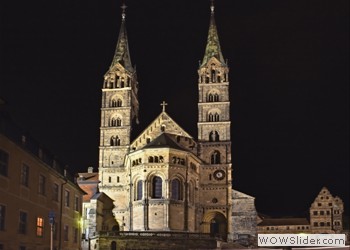

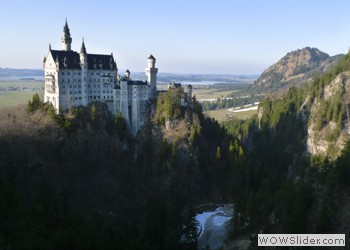
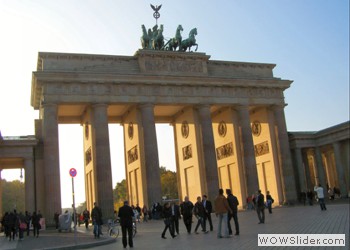
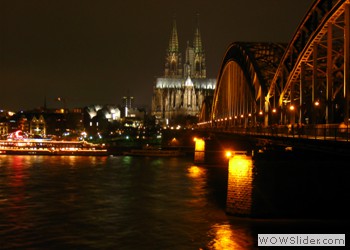


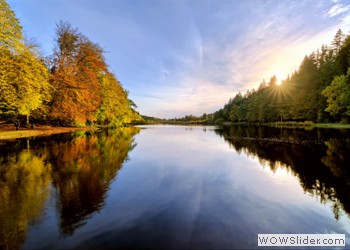
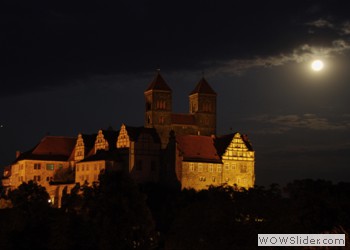

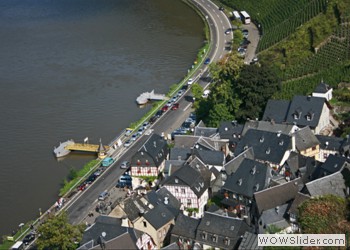
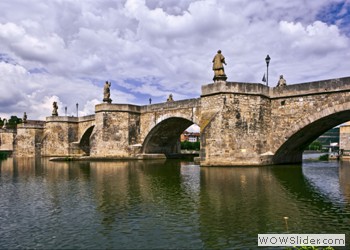


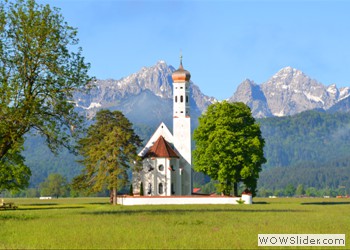



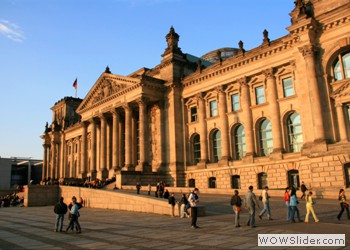
 1
1 2
2 3
3 4
4 5
5 6
6 7
7 8
8 9
9 10
10 11
11 12
12 13
13 14
14 15
15 16
16 17
17 18
18 19
19 20
20





